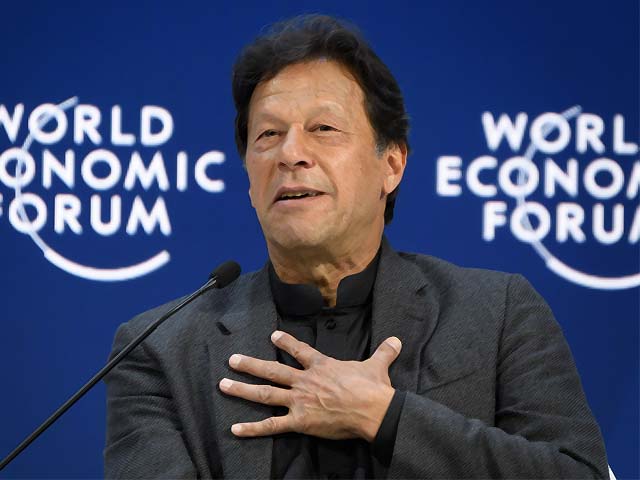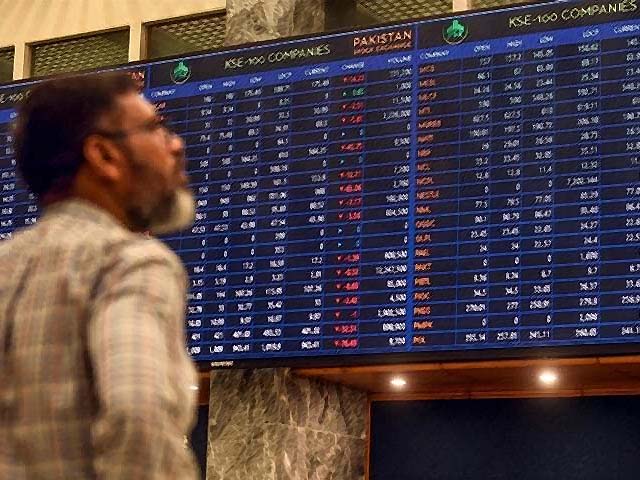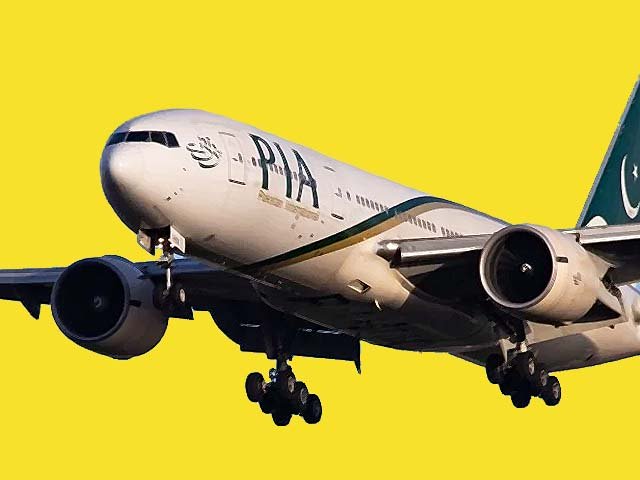
A man watches a live broadcast of the budget speech. PHOTO: AFP
Breaking down the budget
To protect the local industries, taxes have been increased on those imported items which are being produced locally
No noise, no machoism and no bold promises. The federal budget, presented on June 12, 2020, sounded a lot more like a humble and sombre prayer wishing that the economy is able to shake off the disastrous ramifications of the pandemic. On the one hand, coronavirus cases are rising at an alarming pace in Pakistan, while on the other hand the economy is severely contracting. Ultimately, demands for relief can not be matched with falling tax receipts under the International Monetary Fund (IMF) programme. As a result, all global economies are walking a fine line.
With regards to the budget, for several industries, import duties have been reduced, while manufacturers, food producers and garments industries have also been given similar minor relief. To protect the local industries, taxes have been increased on those imported items which are being produced locally to encourage import substitution.
The housing sector remains the government’s best bet. This was made evident by the reduced import duties on raw materials for the steel sector, the reduced federal excise duty (FED) on cement, along with the allocation of a hefty Rs30 billion subsidy for the Naya Pakistan Housing Authority. Let’s hope that the desired jobs are created after the generous amnesty-filled construction package.
For the ordinary citizen, the government aims to keep reduced duties on edible oils to contain food inflation. We have seen similar stunts in the form of removed duties on wheat and vegetable imports. As a result, food inflation is likely to be controlled. One great piece of news for retail shopaholics is that the tax rate has been reduced from 14% to 12% for those organised chains connected with the Federal Board of Revenue’s (FBR) Point of Sale (PoS). Furthermore, the advance tax levied on the purchase of a rickshaw or motorcycle have also been removed.
For parents with school-going children, the active tax payers should be relieved to not have been charged with an advance tax by educational institutions. Similarly, to reduce the burden of other ‘presumptive’ withholding taxes, the government has removed the collection of taxes on educational expenses remitted abroad, a withdrawal of balance from pension funds, functions and gatherings, insurance premium and banking transactions to the extent of foreign remittances received.
To generate revenue, the government has increased the FED on cigars, cigarettes, e-cigarettes and caffeinated energy drinks, which is also an attempt to discourage consumption. Similarly, the increase in revenue from the petroleum levy (tax on petrol and diesel) is expected to generate Rs450 billion by next year, as opposed to the Rs260 billion from this year. It’s clear that the government rightly wants to pocket the partial benefit of falling oil prices.
The government has allocated Rs650 billion for the Federal Public Sector Development Programme (PSDP) compared to the Rs701 billion from last year. Given the overly ambitious FBR tax target of Rs4.9 trillion, PSDP utilisation could be much lower. The government’s desire to increase income tax revenue from Rs1.6 trillion to Rs2 trillion is also on the higher side given most businesses are under severe profitability pressures.
Additionally, the bail-out saga continues. Rs40 billion have been allocated to Pakistan Railways to meet their losses along with Rs 24 billion from PSDP. Furthermore, Rs16 billion and Rs20 billion loans have been allocated for the Pakistan Steel Mills and Pakistan International Airlines (PIA) respectively. That’s a hole worth Rs100 billion which should be plugged immediately and diverted towards education, healthcare, food security and construction of dams.
In a nut-shell, this budget is by no means a monumental event, and the lives of the masses will not change overnight. The government has sets its priorities clearly; try to collect higher tax revenue, continue the IMF programme, allocate more to the housing sector, reduce import tariffs for industries, continue to bear the losses of loss-making government entities, reduce subsidies on energy, no major growth in the defence budget, and issue $1.5 billion Eurobonds.
Minor do-aways with withholding taxes, reduced taxes on PoS retailers, higher taxes on the tobacco sector, and the partial benefit of oil prices would pave the way towards spending money on social protection schemes because of Covid-19. However, one relief is that next year’s inflation target is 6.5%. Let’s hope jobs, businesses, interest rates, and the currency remain stable.




COMMENTS
Comments are moderated and generally will be posted if they are on-topic and not abusive.
For more information, please see our Comments FAQ